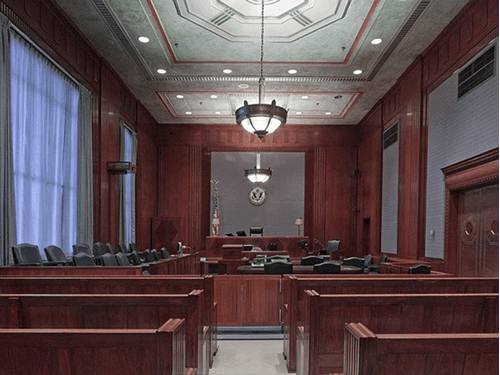Sometimes, a dispute arising at work can only be resolved when third parties are involved.
Arbitration proceedings are one way you can solve a work-related issue, without the need to attend court rooms. Utilising these methods can save you time, money, and effort–allowing you focus on business matters and employee wellbeing.
Disputes in the workplace can often be resolved outside of the courtroom. By doing so, an employer can save time and resources for their business.
In this guide, we'll look at what arbitration is, UK laws on dispute resolution, and how to use it for employee grievances.
What is arbitration?
Arbitration is a process used to resolve disputes between two or more conflicting parties. The resolution method normally uses an impartial third party, called an arbitrator, to reach verdicts.
Arbitral proceedings are commonly used within business areas like finance, labour, and commercial contracts. And they're also used for workplace grievances relating to both domestic and international contracts.
Arbitrators will hear cases from both sides and make a final decision. Arbitration verdicts are binding in such a manner–and that goes for both new and existing grievances.

What are the benefits of arbitration?
In Ireland, disputes are often referred to arbitration. This is because it respects the right of choice both parties are entitled to. And most would rather resolve matters through arbitration than go through expensive and lengthy court proceedings.
Some of the most common benefits of arbitration include:
- The process is voluntarily chosen if both parties agree.
- The process remains private and confidential.
- It's inexpensive compared to court proceedings.
- It's a faster process in comparison to court litigation.
- The final arbitration agreement is binding once it's been announced.

What is an alternative dispute resolution (ADR)?
Alongside arbitration, there are other types of alternative dispute resolution (ADR). They may differ in the methods they use, but all are used for these particular issues.
Examples of other ADR include:
Mediation
Mediation is a private resolution method which uses an independent third party, or a 'mediator', to finalise matters. Most disputes are either referred to arbitration or mediation. Both parties will seek to reach a mutually accepted outcome for a grievance–with the help of the mediator.
This resolution method is a voluntary and is not a legally-binding process. However, legal proceedings can follow if certain criteria is met.
Conciliation
Conciliation is quite similar to mediation. It uses an advisory, confidential independent third party to reach final verdicts. A conciliator will propose a method between the disputing parties.
The process is chosen on a voluntary basis. However, the conciliator does not have legal powers to impose any such provision onto the parties.

What is the Arbitration Act 2010?
The Arbitration Act 2010 is an Irish law which governs arbitration disputes domestically and internationally.
The Act allowed and recognised international arbitration law, which was originally created by the United Nations Commission. They passed the International Trade Law, also known as the UNCITRAL 'Model Law'.
Ireland is a signatory to both Geneva and the New York Convention. Ireland is a neutral third-party country, which complies with both foreign and national courts.
In accordance with the UNCITRAL Model Law, an arbitral tribunal can rule through its own law arising and in the same manner. These arbitration acts are treated as binding; and such agreement can be independent of any other terms within contract law.
The Arbitration Act 2010 doesn't solely apply to all arbitration relating to employment contractual disputes or wages. They also need to relate to terms under the Industrial Relations Act 1964, or to arbitrations under the Property Values (Arbitration and Appeals) Act 1960.

How to use arbitration for employee grievances
When dealing with workplace grievances, you need to follow a procedure which applies both the employee and your business rights. Make sure you provide all relevant information on using arbitration–without risking your own costs at the same time.
Here's how to use arbitration for employee grievances:
Raising an arbitration agreement
Firstly, if both parties have chosen consensual arbitration, it needs to be put into writing. This can be done through arbitration agreement forms (which can be submitted in writing or digitally).
Arbitral proceedings will start when the agreement is initiated. And the hearing will take place on a specific date which parties agree to.
Employees might have the right to proceed if they have an arbitration clause incorporated into their employment contract. (Or through separate arbitration agreements).
When an applicable law or clause doesn't apply, an arbitral tribunal can be used if it's suitable for such a provision.
For your benefit, you might want to include an arbitration clause in employment contracts. This will help both parties waive any issues raised through future disputes.
Selecting an arbitrator
Both parties are allowed to express ways to choose an arbitrator. If both parties cannot agree on this, the High Court can have an independent arbitrator appointed.
The Arbitration Act states the arbitral institution must be impartial and independent of the dispute. Meaning both selected people and processes must treat parties fairly–allowing them to represent their case and all relevant circumstances.
Arbitrators cannot be held liable for anything done or presented after a dispute resolution has been reached. This form of immunity also falls to arbitrators or their representatives, under Irish legislation.
Attending an arbitral tribunal
Generally, this dispute resolution method only needs one arbitrator. They need to be competent in judging an arbitral tribunal. These meetings can be produced through resolution methods, but can become quite costly as hearings continue.
An arbitral tribunal can also request parties are examined through oaths or on affirmation. They can ask a party to provide evidence, accounts, and agreements before the arbitral tribunal takes place.
Actioning arbitration procedures
In Ireland, arbitration proceedings are commonly used for resolving employment disputes. They will generally select arbitration unless they believe the method is unsuitable to be used.
Each party will have a mutual arbitrator appointed, select the arbitral process, and decide on the award costs (which can be subject to appeal through arbitration clauses or limited circumstances).
The nature of an arbitration procedure allows you to have a dispute resolved quickly, efficiently, and inexpensively.
If either party cannot come to an agreement or reject the arbitral award, they may refer disputes to the High Court (according to international arbitration laws).
Deciding on final verdict
Once the hearing has been conducted, a sole arbitrator will reach a final verdict. They can decide to give an arbitral award to one party, or ask them to rejoin again at a future date.
This is the case for domestic and foreign arbitral awards. These must be provided, unless there are legal limitations met under the Model Law.
Appealing an arbitration award
Arbitration awards cannot be appealed against. However, certain cases can result in a dispute referred to the High Court. Here, they may decide to grant interim measures and even foreign arbitration awards.
Remember, once the case has reached the High Court, their final decision cannot be appealed against. These court judgments make Ireland a popular choice when it comes to international arbitration.
Get expert advice on arbitration with Peninsula
It’s important to have the best policy for when a dispute arises in the workplace. Having a strong arbitration business policy can minimise effects on business productivity and concentrate on workforce wellbeing.
Peninsula offers expert advice on using arbitration. Our team offers a 24/7 HR advice service which is available 365 days a year; with multi-lingual assistance and fully trained counsellors ready to help.
Want to find out more? Book a free consultation with one of our HR consultants. Call 0800 028 2420.
